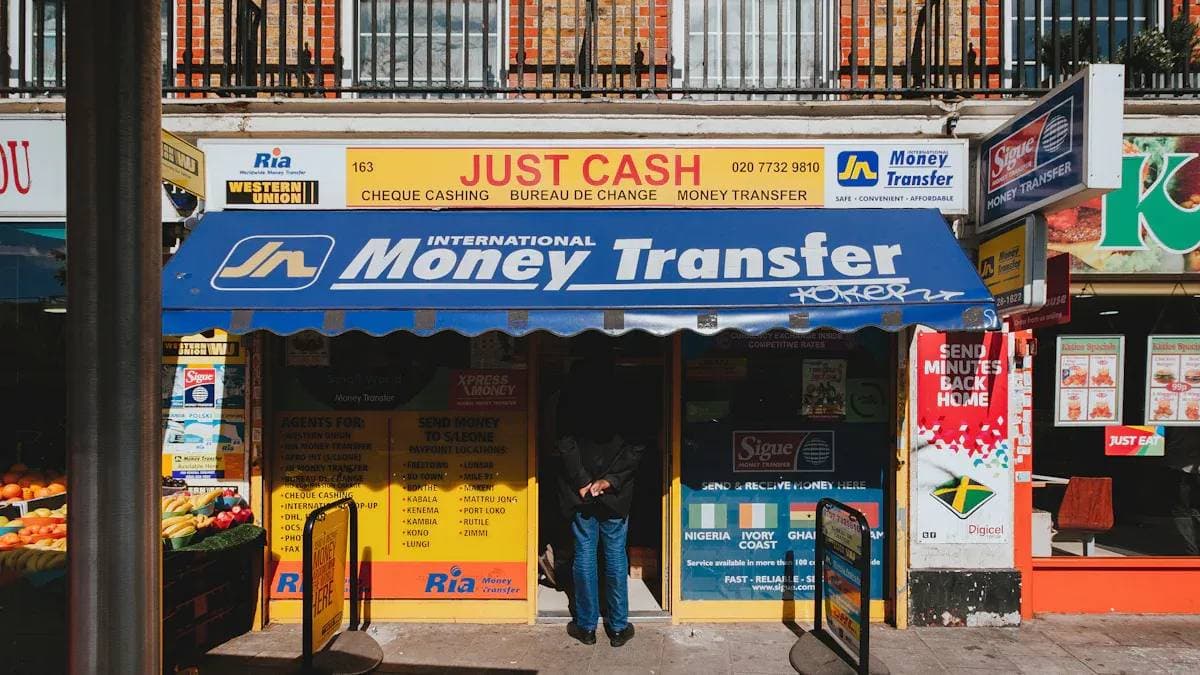- EasyCard
- Trade
- Help
- Announcement
- Academy
- SWIFT Code
- Iban Number
- Referral
- Customer Service
- Blog
- Creator
Comparing the Difficulty of Immigration Policies: Which Country Has the Lowest Threshold for Immigration?
In recent years, many people have started to pay attention to immigration policies, hoping to live in a country they like through immigration. However, the various immigration policies around the world are diverse and frequently updated, causing a lot of confusion.
This article uses “investment immigration” as an example to introduce nine popular immigration countries, helping you evaluate the immigration conditions of different countries and find the ideal immigration country that best suits your needs.

Before the introduction, please note that immigration policies are frequently updated, so please refer to the latest official announcements.
United States Investment Immigration
For those looking to settle in the United States through investment immigration, the EB-5 program is a viable option. Once the application is successful, the applicant, their spouse, and unmarried children under 21 will be eligible for legal permanent residency, known as a green card.
The application requirements stipulate that the applicant must invest in a newly established enterprise with a minimum investment of $1.8 million. If the investment is in a targeted employment area, the minimum investment amount can be reduced to $900,000. Moreover, the enterprise must create at least ten job opportunities and employ U.S. workers as stipulated by law.
In the process of investment immigration, safe and convenient international remittance services are crucial. It is recommended that you use the multi-asset wallet BiyaPay. BiyaPay supports the recharge of more than 200 digital currencies and exchange them into legal currencies such as US dollars, Hong Kong dollars, and British pounds. Its service scope covers most regions and countries around the world.
Transfer it to your bank account through local remittance, and the funds will arrive safely in a matter of minutes. The handling fee is as low as 5%, providing you with safe, fast and preferential international remittance services. The biggest advantage of BiyaPay is that it supports large-amount remittances, making your fund management for investment immigration more convenient and efficient.
Canada Investment Immigration
Canada’s investment immigration program, the Start-up Visa, is more suitable for those with entrepreneurial ideas. This program is designed for entrepreneurs planning to engage in business activities in Canada, but it does not apply to the province of Quebec.
Applicants must propose an innovative and internationally competitive business idea that can contribute to the Canadian job market. They must also have at least a basic level of English (CLB level) and receive support and funding from designated organizations such as venture capital funds.
Immigrants must demonstrate financial capability, which varies based on family size. For example, a single applicant (one-person household) needs to have at least CAD 13,757.
For those without entrepreneurial intentions, Quebec’s Investor Immigration Program (QIIP) offers another route. It requires applicants to have a certain level of French proficiency and to own at least CAD 2 million in net assets jointly with their spouse. Once approved, applicants can apply for a work visa and must reside in Quebec for at least 12 months within two years.
Japan Investment Immigration
Japan does not have a specific program for investment immigration, but those interested in immigrating to Japan through investment can apply for the “Business Manager” visa. Applicants must meet the requirements of investing over JPY 5 million to establish a company in Japan or employ at least two full-time employees.
Upon successfully obtaining the visa, applicants will be granted a residency period of up to five years. They must apply for renewal before the visa expires to maintain their legal residency status in Japan.
United Kingdom Investment Immigration
Currently, the United Kingdom’s Investor Visa (Tier 1) and Entrepreneur Visa (Tier 1) are not open for applications. Those interested in immigrating to the UK can apply for the Innovator Founder Visa.
Visa conditions include not joining an existing business; the entrepreneurial idea must differ from existing business models in the market and have growth potential. The entrepreneurial idea must also be endorsed by an endorsing body.
The Innovator Founder Visa has relatively low asset requirements compared to other countries. Applicants must prove that their bank account has held at least £1,270 continuously for the past 28 days.
Hong Kong applicants must provide proof of English proficiency, achieving the required level in English tests such as CEFR or SELT.
Upon successful application, applicants can bring their partner and children to stay in the UK for three years, with the option to apply for an extension of three more years.
Portugal Investment Immigration
Portugal’s “Golden Visa” used to allow obtaining a residence visa through property investment, but this pathway has recently been canceled. Now, applicants can immigrate to Portugal by applying for a Residence Permit for Investment Activities. Successful applicants and their family members can obtain a five-year residency, after which they can apply for permanent residency. Applicants must meet one of the following investment criteria:
- Create at least 10 job opportunities
- Transfer €500,000 to scientific research activities
- Transfer €250,000 to public services
- Transfer €500,000 to business activities
- Transfer €500,000 to establish a company and create 5 permanent jobs for at least three years
South Korea Investment Immigration
South Korea’s investment immigration plan is relatively straightforward, allowing applicants to apply for an F2 residence visa along with their spouse and unmarried children by investing a specified amount. Applicants can choose one of the investment options under the Immigrant Investor Scheme for Public Business (IISPB):
- Risk-free, non-interest-bearing investment: Invest a specified amount in a public fund, with the principal returned after five years
- Risk-bearing investment: Invest a specified amount in development projects in underdeveloped areas, with the potential for profit or loss
The minimum investment amount is KRW 500 million, with a lower threshold of KRW 300 million for retirees over 55. After five years of investment, applicants can apply for F5 permanent residency (PR).
Singapore Investment Immigration
Singapore offers the Global Investor Programme (GIP), which allows individuals to apply for permanent resident status (PR) through investment. The program has different application conditions and investment requirements, tailored to existing business owners, next-generation business owners, startup founders, and family office principals.
Existing Business Owners Application Conditions:
- At least three years of experience
- Annual business turnover of at least SGD 2 million
- If the business is privately held, ownership of more than 30% equity
- The business must be in a specified industry
Investment Requirements:
Depending on the applicant’s identity, they must meet one of the following three conditions:
- Invest SGD 10 million to establish a new company or expand an existing business in Singapore; or
- Invest SGD 25 million in a GIP fund; or
- Establish a single-family office with an Assets Under Management (AUM) of SGD 200 million, with SGD 50 million invested in specified sectors
Each of these options comes with specific time frames and industry requirements, such as a minimum investment period of five years and different conditions for various sectors.
Summary
The above overview of investment immigration policies in several popular regions helps you understand the differences in “investment immigration” policies of different countries, making it easier for you to choose the most suitable immigration country based on personal or family circumstances.
*This article is provided for general information purposes and does not constitute legal, tax or other professional advice from BiyaPay or its subsidiaries and its affiliates, and it is not intended as a substitute for obtaining advice from a financial advisor or any other professional.
We make no representations, warranties or warranties, express or implied, as to the accuracy, completeness or timeliness of the contents of this publication.




Contact Us
Company and Team
BiyaPay Products
Customer Services
is a broker-dealer registered with the U.S. Securities and Exchange Commission (SEC) (No.: 802-127417), member of the Financial Industry Regulatory Authority (FINRA) (CRD: 325027), member of the Securities Investor Protection Corporation (SIPC), and regulated by FINRA and SEC.
registered with the US Financial Crimes Enforcement Network (FinCEN), as a Money Services Business (MSB), registration number: 31000218637349, and regulated by FinCEN.
registered as Financial Service Provider (FSP number: FSP1007221) in New Zealand, and is a member of the Financial Dispute Resolution Scheme, a New Zealand independent dispute resolution service provider.



















